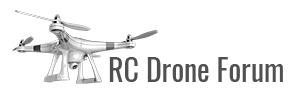-
Sign Up, it's FREE!
Welcome to RC Drone Forum! Use the main menu and search bar to navigate our site. It's always FREE to join our Drone Community and post in our forums, create your own Drone club, share your photos and videos and more. It's easy to get started and you can login with some of these popular social networks.


Recommended Posts
Join the conversation
You can post now and register later. If you have an account, sign in now to post with your account.